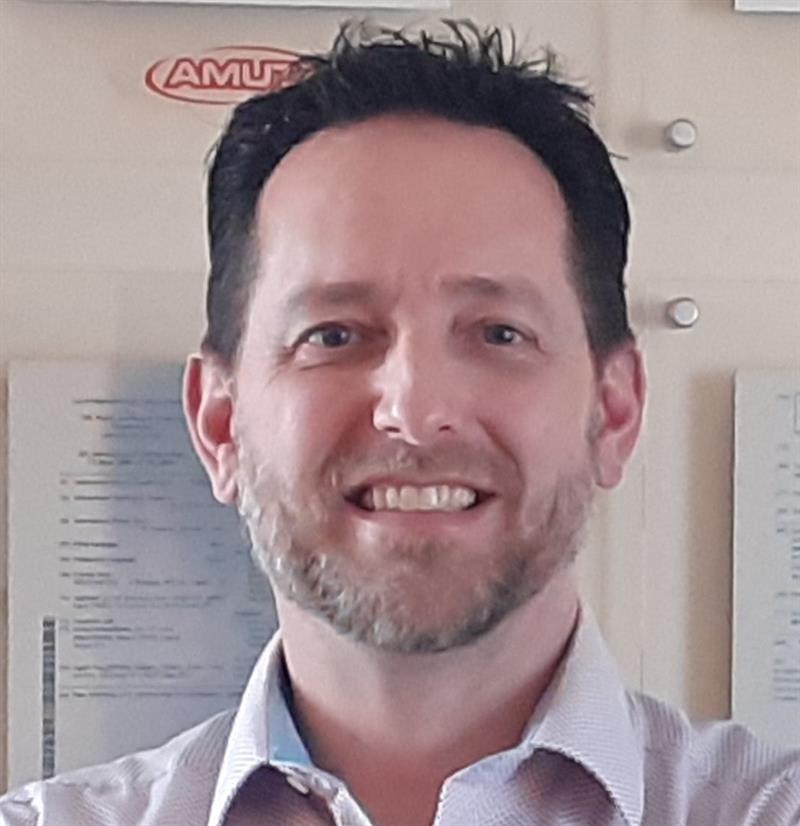Speaker Interview: Gordon Olsen, AMUT North America
Please share some background on yourself and your company
Gordon has spent most of his 30-year career in plastics manufacturing. Based north of Toronto, Canada, Gordon began his career in product development, product management, and marketing in injection molding. From there, he moved to flexible food packaging
and then to high-speed packaging equipment using those flexible films. Today, Gordon manages the sales and marketing activities for AMUT in all of North America, which is a very important market for the company, where several extrusion lines and plastic
recycling plants have been installed over the last 30 years. Gordon is also the coordinator for the new North American team AMUT has built (and is looking to expand) for local after-sales and service.
AMUT is a world-class leader in extrusion
and recycling equipment. Based in Novara, Italy, AMUT began producing extruders back in 1958, developing some of the most efficient and value-driven extruders on the market. During the 1980s, AMUT started designing, engineering, and building turnkey
recycling plants for almost any type of plastic—including PET bottle-to-bottle and thermoforms, as well as PP and PE, both rigid and flexible. AMUT’s patented delabeller and friction washers, along with low water consumption, set AMUT
apart from the industry. The delabeller provides higher efficiency in label removal while maintaining the integrity of the bottle. The friction washer uses high friction, flake-on-flake contact to remove grit, glue, and other contaminants while also
preserving the integrity of the material. Additionally, the water systems designed and used by AMUT recycling plants allow for significantly more reuse of water in the system. This dramatically reduces water consumption (and consequently lowers chemical
consumption as well) for the processor. Today, AMUT has several thousand important customers and installations all over the globe for both technologies in plastic extrusion and recycling.
What major problems are currently facing recyclers and how can developments in machinery address these?
There are many different challenges facing recycling in the North American market. These include the collection and availability of feedstock, as well as contamination and multi-layered materials. While governments, brand owners, and waste collectors work on providing more access to recycling for consumers (curbside, deposits, EPR, etc.), we at AMUT are addressing the issues of contamination and efficiency. In order to allow convenience-oriented consumers, such as those in North America, to have quick and easy access to recycling, AMUT understands that more contamination is likely. To that end, AMUT has the technology to sort out recyclables from non-recyclables, even from basic collections. AMUT’s washing technology will also clean and prepare a recycled product according to each customer’s specifications, even achieving food-grade quality if required. With the rise of multi-layered products, AMUT’s current and new technologies are working to separate those materials with a high degree of success, allowing those products to remain in the recycling stream.
What advances in collection, sorting, and pre-treatment are needed to optimise both the output and quality of mechanical recycling?
Understandably, the more material is sorted, the better and easier it is to mechanically recycle plastics. As collection systems incorporate more and better sorting into their processes, they can provide higher-quality bales to recyclers. This will decrease loss and increase productivity and efficiency in the downstream process. That said, AMUT has the capability to sort and pre-treat almost any material. This means the biggest issue for recyclers is access to input materials—bales. As North America develops better collection systems and options to retrieve materials from consumers, AMUT, together with our recycling customers, is ready to get that material back to the producers for reuse.
In your talk you will be discussing technologies for recycling polyolefins. Are current PE and PP recycling technologies capable of achieving full circularity for these materials, such as in bottle-to-bottle PET recycling? If not, what are the limiting factors?
The quick answer is yes! AMUT has the technology and actual references internationally where PE and PP recycling is taking place at the same levels of circularity as PET. At these facilities, AMUT has helped its recycling customers create food-grade rPE and rPP flake that can be used in food contact packaging.
What can people expect to learn from your talk and AMUT’s booth at this upcoming expo?
The goal of AMUT’s presentation will be to provide an understanding to the market that they can build on the successes of PET recycling and complete the circularity of PE and PP products. AMUT will showcase some of the technology and examples where PE and PP are being recycled. The focus should now be on convincing producers, consumers, and regulators that these materials can continue to provide us all with safe, economical, and recyclable containers for the products we purchase and use. With recycling, plastics are one of the safest and easiest ways to package, ship, and secure those products. Let’s not jeopardize the quality of life, ease of transport, and food safety that plastics provide by thinking that we cannot solve the recycling issue. It has been resolved, and we have the cases to prove it.
Gordon Olsen will be speaking on Day 1 at the Plastics Recycling World Expo Theater.
Conference Producer

Peter Hannan-Young has a BSc in Chemistry from the University of Reading, UK, and a Masters in Green Chemistry from Imperial College London, UK. He has previously worked for Sun Chemical developing
their UV-curing inkjet products but now works for AMI as a Conference Producer. He is interested in materials and is passionate about sustainability and likes to use his knowledge of both to drive environmentally-conscious development in industry.

